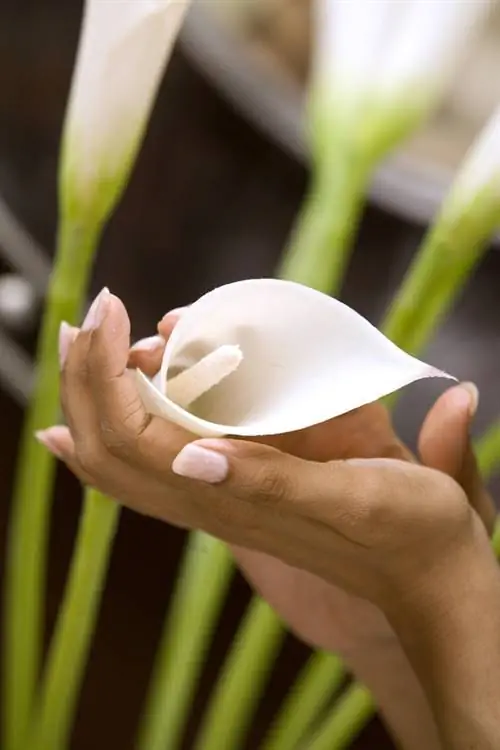- Author admin leonars@hobbygardeners.com.
- Public 2023-12-16 16:46.
- Last modified 2025-01-23 11:22.
The rotary fruit (bot. Streptocarpus), also known as the velvet bell or African violet, is a popular, although not easy to care for, houseplant. However, families with children and owners of pets such as cats, dogs or budgies in particular are wondering whether the rotary fruit is poisonous.

Is the rotary fruit poisonous to people and pets?
The rotary fruit (Streptocarpus) is non-toxic to people and pets such as cats, dogs or birds and can be safely kept as a houseplant. In rare cases it can cause a mild rash on sensitive skin.
Is the rotary fruit poisonous to humans?
In contrast to many other houseplants that come from the tropics, the rotary fruit is considered to be completely non-toxic to humans. This makes the streptocarpus, which comes from the Gesneriaceae family, perfect for families with small children - so mothers and fathers don't have to worry about symptoms of poisoning if the little ones taste the colorful flowers.
The same plant family includes other popular houseplants such as
- African Violet (Saintpaulia)
- Gloxinia (Sinningia speciosa)
- Shames (Aeschynanthus)
- Skewed plate (Achimenes)
- or Kissing Mouth (Nematanthus)
which are also classified as non-toxic despite their external differences and different origins.
Is rotary fruit poisonous to pets?
Pet owners don't have to worry either. The beautifully flowering rotary fruit is harmless to all animal companions, whether cats, dogs, birds or reptiles. Therefore, curious cats or cheeky budgies can nibble on the green leaves without worry. The houseplant, which comes from Madagascar, is also very suitable for placing in a terrarium for iguanas, turtles, snakes and other reptiles.
What to do if an itchy rash appears after touching it?
People (and pets) with very sensitive skin may develop an itchy rash after contact with the sap of the rotary fruit. Although this is unpleasant, it is harmless and only occurs very rarely. In this case, the following measures provide quick relief:
- wet compresses with cold black tea
- Cooling the affected areas, e.g. B. with a cold pack from the fridge
- cold shower
- cooling ointments or creams (from the pharmacy)
The symptoms usually disappear quickly, so a visit to the doctor is not necessary. However, if you suspect an allergy, you should have this checked medically.
Tip
Be careful of plants from conventional stores
Even if the rotary fruit itself is harmless, it can still be contaminated with toxins such as artificial fertilizers, growth hormones or, to protect against pests and diseases, pesticides. These can cause discomfort and symptoms of poisoning in humans and animals.
Is the rotary fruit poisonous?
- Rotating fruit contains no toxins
- is harmless to humans and animals
- Can be safely used to beautify terrariums etc.
- causes an itchy rash in very rare cases
- Be careful with conventionally grown plants: they are often treated with toxic pesticides etc.






